
My social media feed is filled with partisan bickering and that is pretty much par for the course. Recently I have observed a debate about a couple of letters to the editor published by my local paper, the Pueblo Chieftain. I’ll refer to the two letter writers as Citizen A and Citizen B to protect their identity, and to try to provide some space between the debate over their statements and the debate over this particular political disagreement.
Citizen A wrote a letter that was published on June 30th in which he took a stand on a highly contentious issue that is currently in the news. Here is an excerpt taken out of context (in order to minimize bias depending on your stand on the issue). “Silence is more than complicity. Silence is violence. The coming war must be fought by all means necessary, by the pen and by the sword.”
In response, Citizen B wrote a letter in which he quoted the last line of the above quote and then added this: “This guy is the kind of cancer who there needs to be a cure for. I have a cure, but it is illegal.”
While the First Amendment protects citizens’ rights, including the right to free speech or free expression, there are well-known exceptions to that protection. For example one cannot claim protection for speech that is defamatory, violates copyright, or incites violence. It is why you’ll likely be arrested if you talk about having a bomb while you’re in an airport (or other public spaces). Which brings us back to the discussion playing out on my Facebook page. Do either of these letters to the editor cross that line? Is either one a “true threat”? Are either/both of them protected speech, or does one or the other fall outside of the protection of the First Amendment and potentially place the “speaker” in legal jeopardy?
The statement by Citizen A is a vague call to violent action but is not directed at anyone specifically. The statement by Citizen B addresses a specific individual, but recognizes the legal constraint imposed on the implied action. One does not need to read between the lines to come to the conclusion that the “illegal” cure is physical harm directed at Citizen A.
Legal precedent is does not provide a clear answer to these issues. Whether one applies the “incitement to imminent lawless action” standard or considers whether the speech constitutes a “true threat” as interpreted by a “reasonable person,” much remains unsettled.
Supreme Court Justice Sandra Day O’Connor, in a response to a pair of cross-burning cases collectively known as Virginia v. Black (2003), upheld the Virginia law making it illegal to intimidate others by burning a cross. Such actions constituted a “true threat” and could be deemed illegal. According to her opinion,
‘True threats’ encompass those statements where the speaker means to communicate a serious expression of an intent to commit an act of unlawful violence to a particular individual or group of individuals. The speaker need not actually intend to carry out the threat. Rather, a prohibition on true threats protect[s] individuals from the fear of violence and from the disruption that fear engenders, in addition to protecting people from the possibility that the threatened violence will occur.
The jury is still out, but some on Facebook have reached their conclusions. In fact, some reached their conclusions largely on the basis of the original political debate…long before the threatening language was introduced. And that, sadly, is the real tragedy on display.

 You may have missed the 72nd Annual Tony Awards broadcast last week…actually, based on ratings you almost certainly missed it…but even so you may have heard that movie star Robert De Niro dropped the f-bomb in a political statement directed at President Trump. Networks censors were ready and bleeped the offending word, as required by the FCC, but viewers at home still got the message.
You may have missed the 72nd Annual Tony Awards broadcast last week…actually, based on ratings you almost certainly missed it…but even so you may have heard that movie star Robert De Niro dropped the f-bomb in a political statement directed at President Trump. Networks censors were ready and bleeped the offending word, as required by the FCC, but viewers at home still got the message.
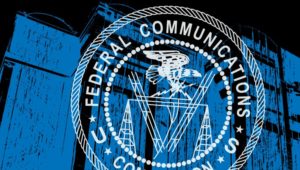
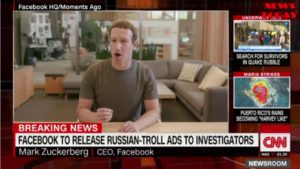
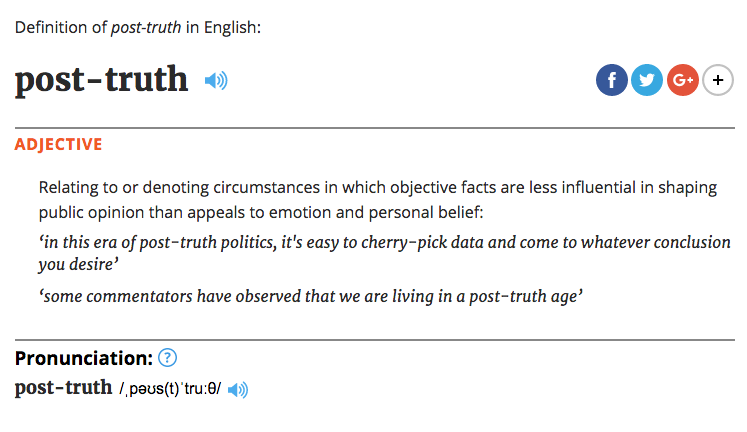
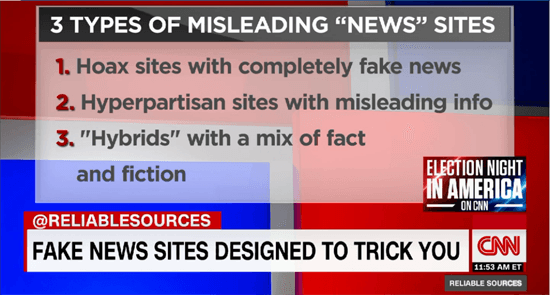 There’s been a lot of discussion lately about the potential danger of fake news. Apparently we’re a lot more gullible and susceptible to misinformation than anyone imagined, and IT IS KILLING DEMOCRACY! Okay, that conclusion may be overstating it a bit, but the number of media and political analysts who are wringing their hands over the outcome of the recent election seems to be growing. And seeking an explanation (or scapegoat), some are pointing the finger at fake news.
There’s been a lot of discussion lately about the potential danger of fake news. Apparently we’re a lot more gullible and susceptible to misinformation than anyone imagined, and IT IS KILLING DEMOCRACY! Okay, that conclusion may be overstating it a bit, but the number of media and political analysts who are wringing their hands over the outcome of the recent election seems to be growing. And seeking an explanation (or scapegoat), some are pointing the finger at fake news.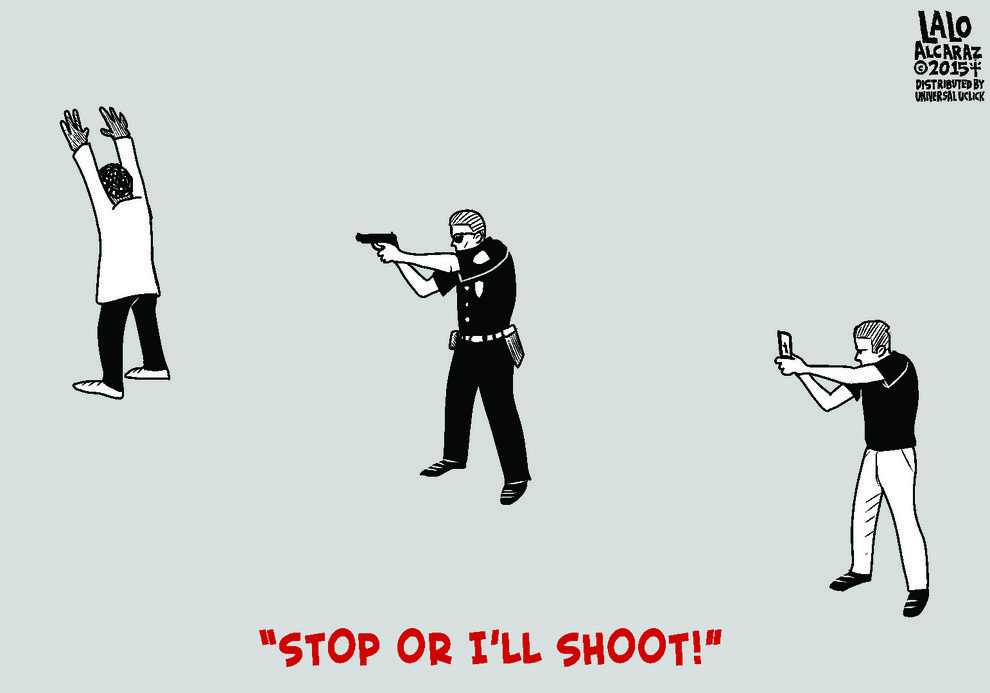 CSU-Pueblo MCCNM alum Daneya Esgar (class of 2001) is co-sponsoring legislation before the Colorado state legislature. Before becoming a State Representative, Esgar was a news producer for local affiliate KOAA-TV. In her new role Esgar is promoting legislation that expand protection for citizen journalists and ordinary citizens who may find themselves eye witnesses to law enforcement agencies working in the local community.
CSU-Pueblo MCCNM alum Daneya Esgar (class of 2001) is co-sponsoring legislation before the Colorado state legislature. Before becoming a State Representative, Esgar was a news producer for local affiliate KOAA-TV. In her new role Esgar is promoting legislation that expand protection for citizen journalists and ordinary citizens who may find themselves eye witnesses to law enforcement agencies working in the local community.